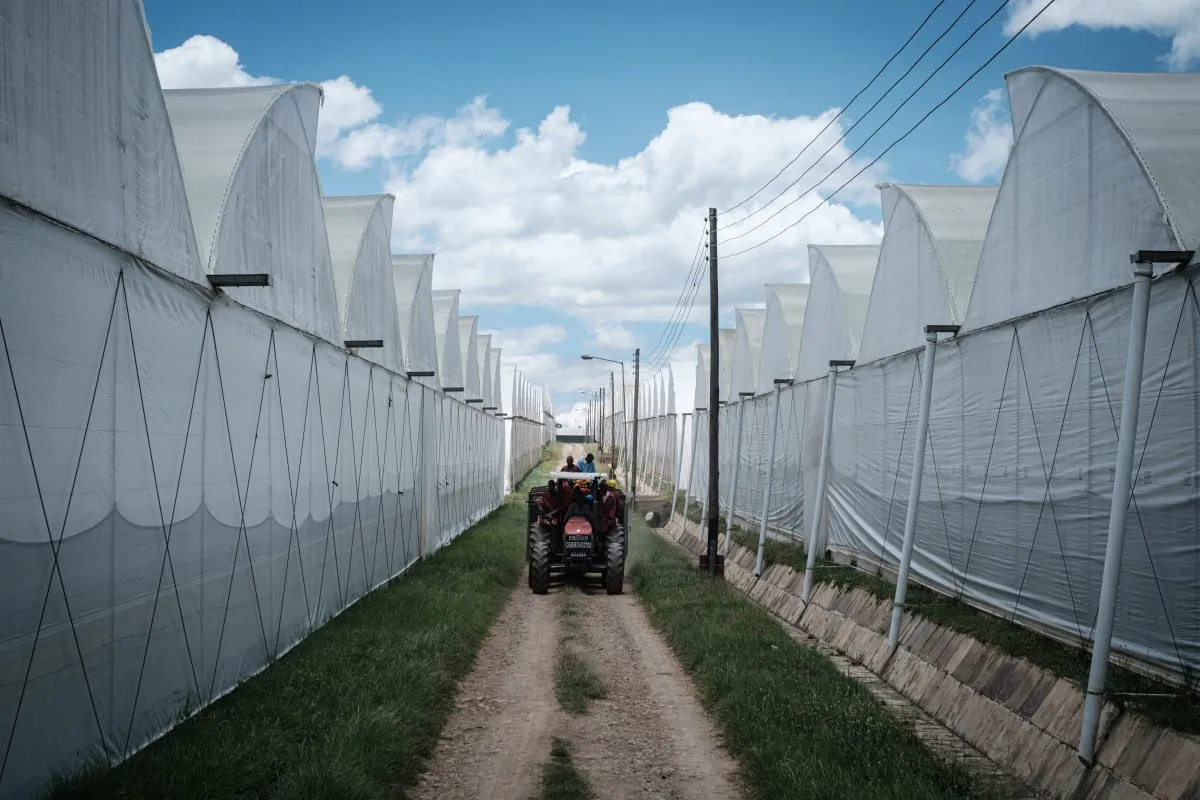There is little doubt that Africa has the potential to become a global agricultural powerhouse. With excellent growing conditions across large parts of the continent, a huge agricultural workforce and a relative abundance of land that could be converted for arable farming, Africa appears to possess all the ingredients to ramp-up food production in the coming years.
But the reality today is that many parts of the continent remain reliant on food imports, despite theoretically having the means to produce large surpluses. Akinwumi Adesina, president of the African Development Bank, lamented in a speech last year that Africa will spend $110bn on food imports by 2025, with 283 million people going hungry across the continent.
There are many reasons for Africa’s long-term under-performance in agriculture. But among the key factors is the inadequacy of infrastructure for transporting, storing and processing crops. The World Resources Institute says that more than one-third of all food produced in the continent, including grains valued at more than $4bn, is lost or wasted. This reflects the fact that farmers struggle to transport perishable food products to markets and lack access to cold storage facilities.
In fact, the lack of agri-processing infrastructure across most parts of Africa removes an incentive to invest in increasing food production. It also makes it nearly impossible for African food exporters to graduate from producing raw commodities to higher-value processed food products. With rising food import costs exerting increased pressure there are now some signs that policymakers are taking the problem more seriously. Rapid progress is vital if Africa is to begin fulfilling its agricultural potential.
Upgrading capacity
Investment in agriculture, although generally neglected by African governments over the course of many years, is widely recognised as key to boosting incomes across the continent.
“It is estimated that for every 10% increase in agriculture production in Africa, there is a corresponding 8% decrease in poverty among smallholder farmers,” says Fredrick Kiio, head of programmes for agribusiness at the non-profit African Enterprise Challenge Fund. He notes that while there increasing production should clearly be a priority for governments, it “only makes sense” for farmers to invest in increasing output if agri-processing infrastructure is available.
Kiio adds that the first step to boosting food production is to ensure that basic infrastructure is in place. This includes expanding road networks to enable farmers to get their produce to markets. Almost half of Africa’s rural population must travel at least five hours to reach the nearest market, according to a 2022 UN report.
Bringing more land under irrigation is another key priority. Despite considerable progress over the past two decades, UN Food and Agriculture Organization figures show that only 1.5% of agricultural land in Africa is equipped for irrigation, compared to 14.7% in Asia. And improving the availability of electricity is also vital for enabling cold storage and powering processing operations. Around half of Africa’s population lacks electricity access, with electricity typically much scarcer in rural areas.
Sara Mbago-Bhunu, director of the east and southern Africa division at the International Fund for Agricultural Development (IFAD) – a UN agency – warns that there has still been “very little progress” in electrifying agricultural facilities using off-grid solar. While this technology has great potential, she notes that governments’ desires to keep tariffs “unrealistically low” has undermined efforts to attract investment.
Mbago-Bhunu does believe that pay-as-you-go models for off-grid solar, which allow users to avoid a large upfront investment, can help to significantly improve access to refrigeration and lighting. As yet, though, she says that these models are generally “not geared towards agribusiness and agri-processing.” She argues that providers of off-grid solar technology need to offer packages that are tailored towards agriculture, for example by offering services across a range of agribusiness functions.
Nigeria welcomes investment
Progress towards upgrading Africa’s agro-processing facilities is being made, however. Valency Agro Nigeria, the local subsidiary of a Singapore-headquartered agricultural commodities company, opened a supply chain facility in the city of Ibadan, in south-west Nigeria, in March, which will be used for the warehousing and processing of various food crops.
Sumit Jain, Valency’s CEO, says that the complex offers warehousing capacity to store more than 45,000 tonnes of agricultural produce – equivalent to the output of around 10,000 smallholder farmers. The site also contains cleaning units and a drying yard to be used for produce such as cashew nuts and cocoa. Further processing facilities are planned to open in the next two years.
“Complexes of this nature can only bring more speed to the overall supply chain and reduce food wastage,” says Jain. He notes that this is vital to boosting food security. With Nigeria’s population set to surpass the United States by around 2050, Jain says that “this country will need the right kind of investments being made to feed the local population, and to process what is meant for export.”
The facility, which received a $15m investment from British International Investment, the UK’s development finance institution, is also intended to help Nigeria increase the utilisation of agricultural byproducts. For example, Jain notes that lubricants and other byproducts can be harnessed from cashew, thereby substituting for petroleum or coal-based products.
Creating clusters
Delivering more agri-processing projects of this nature is not straightforward, Mbago-Bhunu warns. A heightened perception of risk around African agriculture makes it harder and more expensive to attract financing.
She notes that investments in agri-processing are more common in peri-urban areas of the continent. These locations have better access to consumers, who are concentrated in cities. They also benefit from road connections and are more likely to have a reasonably stable electricity supply.
Mbago-Bhunu argues that a key next step is to focus more on the ‘cluster model’ in the agri-processing sector. This involves creating a “critical mass” by concentrating businesses that offer services covering multiple different parts of a value chain within a particular area.
IFAD has invested alongside the AfDB, the Islamic Development Bank and the Nigerian government to create Special Agro-Industrial Processing Zones (SAPZ) in Nigeria. The SAPZ programme, launched in 2022, aims to spur the development of value chains around selected crops, including maize, cassava and rice. At least seven states are seeking to host SAPZs in the first phase of the programme.
Organisations seeking to improve agri-processing infrastructure face a “losing battle” unless they select the right areas to invest in, Mbago-Bhunu says. Some of the most marginal rural areas are not realistically well-positioned to attract investors, especially as climate catastrophes force more and more people to move away. But by creating clusters or corridors, areas that do have good potential for agricultural development can take-off, she argues.
“We increasingly see that governments want to design programmes like that, targeting specific investment areas so that they can attract people to invest,” she says. Public funds, or funds from development institutions like IFAD, can help de-risk private sector investment in the supporting infrastructure.
Ultimately, further incentivising private sector investment will clearly be vital if Africa’s agriculture sector is to finally receive the kickstart it badly needs. The future of food production on the continent will depend not only on its fields and soils, but on its factories and warehouses.
Want to continue reading? Subscribe today.
You've read all your free articles for this month! Subscribe now to enjoy full access to our content.
Digital Monthly
£8.00 / month
Receive full unlimited access to our articles, opinions, podcasts and more.
Digital Yearly
£70.00 / year
Our best value offer - save £26 and gain access to all of our digital content for an entire year!

 Sign in with Google
Sign in with Google 



